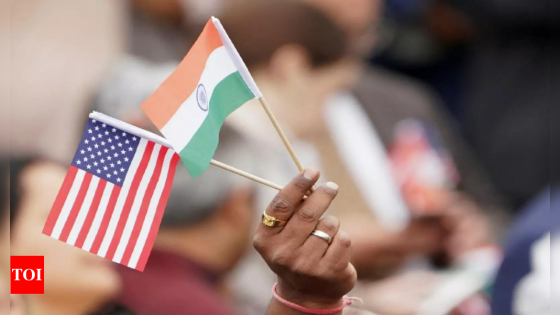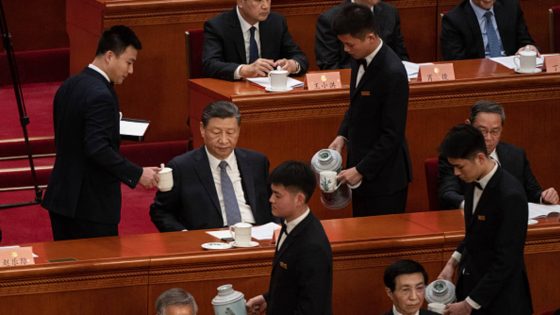NEW DELHI: Indian-American lawmakers have expressed their intention to continue raising human rights concerns in India with the leadership, but they believe that lecturing New Delhi on this matter is unlikely to yield positive results. Instead, they advocate for engaging in a dialogue with leaders to address their apprehensions.
Congressman Ro Khanna, who co-chairs the Congressional India Caucus, emphasized the importance of understanding India’s colonial history spanning over a century.He stated, “India was colonized for over 100 years. So, when we’re having a conversation about human rights, and you’re having a conversation with (external affairs minister) S Jai Shankar or someone else, you have to understand that just coming in from a perspective of lecturing India. When they say that we’ve had colonial powers lecture us for hundreds of years is not going to be productive.” Khanna told this to the members of the Indian-American community during the “Desi Decides” Summit of Indian American Impact.
Khanna suggested that a more constructive approach would be to acknowledge the imperfections in both American and Indian democracies and work together to advance democracy and human rights.
Khanna was joined by three other Indian American lawmakers — Shri Thanedar, Pramila Jayapal and Dr Ami Bera — during the panel discussion, which was moderated by Zohreen Shah, ABC national correspondent, who asked them about Prime Minister Narendra Modi’s relations with the Muslim community.
Dr Ami Bera agreed with Khanna’s perspective and shared that he had conveyed a similar message to the Indian foreign minister. “I’ve said the same to the (Indian) foreign minister. If India loses its secular nation, it changes who she is as a country and how the rest of the world views it,” he said.
Bera also drew a distinction between the Trump presidency and Prime Minister Modi’s government, highlighting the resilience of the American democratic system, which includes a robust opposition party, freedom of the press, and the ability to challenge the government. He expressed concern about the state of these democratic elements in India and hoped that the country’s democracy would endure.
Pramila Jayapal concurred with her colleagues and added that it is the responsibility of Congress to critique both their own country’s imperfections and those of other nations. She emphasized the importance of considering the United States’ interests, including economic partnerships and regional dynamics, while also upholding American values. Jayapal stated that raising legitimate concerns about freedom of religion and the press in India does not diminish the appreciation for the partnership between the two countries.
“It is also important for us to think about our values. Just like we criticize the Chinese government for the treatment of Uyghurs or any other country in the world, we have to be able to also look at what’s happening in India and call attention to it,” she said.
Shri Thanedar expressed his support for a strong India-US relationship, urging India to commit to a strong friendship with the United States. He recognized India’s economic power and its potential to counteract China’s aggression, emphasizing the need for the United States to acknowledge India’s strength and work towards a robust bilateral relationship.
(With inputs from agencies)
Congressman Ro Khanna, who co-chairs the Congressional India Caucus, emphasized the importance of understanding India’s colonial history spanning over a century.He stated, “India was colonized for over 100 years. So, when we’re having a conversation about human rights, and you’re having a conversation with (external affairs minister) S Jai Shankar or someone else, you have to understand that just coming in from a perspective of lecturing India. When they say that we’ve had colonial powers lecture us for hundreds of years is not going to be productive.” Khanna told this to the members of the Indian-American community during the “Desi Decides” Summit of Indian American Impact.
Khanna suggested that a more constructive approach would be to acknowledge the imperfections in both American and Indian democracies and work together to advance democracy and human rights.
Khanna was joined by three other Indian American lawmakers — Shri Thanedar, Pramila Jayapal and Dr Ami Bera — during the panel discussion, which was moderated by Zohreen Shah, ABC national correspondent, who asked them about Prime Minister Narendra Modi’s relations with the Muslim community.
Dr Ami Bera agreed with Khanna’s perspective and shared that he had conveyed a similar message to the Indian foreign minister. “I’ve said the same to the (Indian) foreign minister. If India loses its secular nation, it changes who she is as a country and how the rest of the world views it,” he said.
Bera also drew a distinction between the Trump presidency and Prime Minister Modi’s government, highlighting the resilience of the American democratic system, which includes a robust opposition party, freedom of the press, and the ability to challenge the government. He expressed concern about the state of these democratic elements in India and hoped that the country’s democracy would endure.
Pramila Jayapal concurred with her colleagues and added that it is the responsibility of Congress to critique both their own country’s imperfections and those of other nations. She emphasized the importance of considering the United States’ interests, including economic partnerships and regional dynamics, while also upholding American values. Jayapal stated that raising legitimate concerns about freedom of religion and the press in India does not diminish the appreciation for the partnership between the two countries.
“It is also important for us to think about our values. Just like we criticize the Chinese government for the treatment of Uyghurs or any other country in the world, we have to be able to also look at what’s happening in India and call attention to it,” she said.
Shri Thanedar expressed his support for a strong India-US relationship, urging India to commit to a strong friendship with the United States. He recognized India’s economic power and its potential to counteract China’s aggression, emphasizing the need for the United States to acknowledge India’s strength and work towards a robust bilateral relationship.
(With inputs from agencies)
Source Agencies



